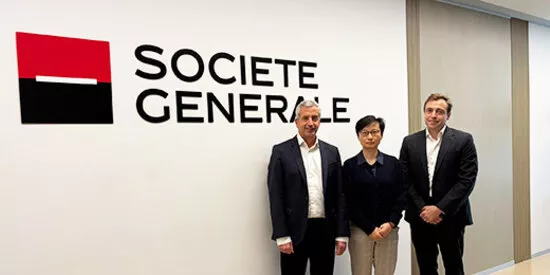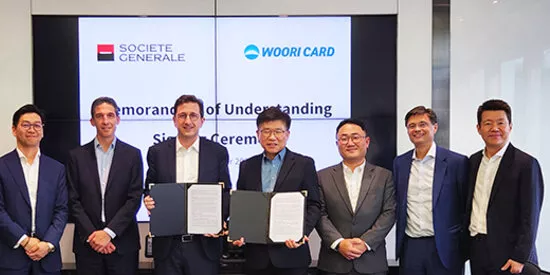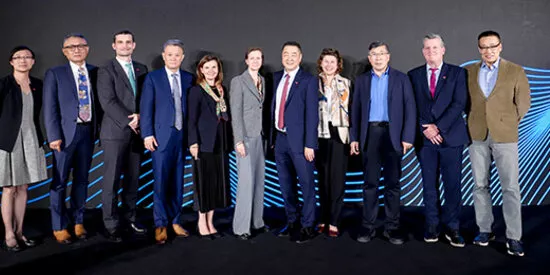
India’s decarbonisation drive: From ambition to action
Fast-growing India provided the ideal setting for Societe Generale’s first Positive Impact Day of 2025, bringing together business leaders and industry experts to discuss India’s pivotal role in global decarbonisation.
India’s economy expanded an impressive 7.4% in the first three months of 20251, underlining its success in balancing progress on sustainability with corporate and commercial growth ambitions.
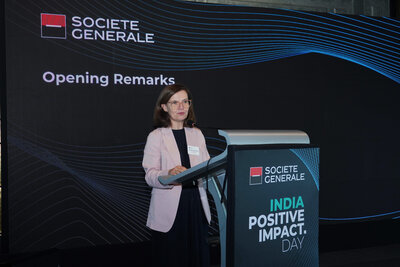 “In our conversations with businesses and investors here, we have seen a new level of sophistication and a new understanding of the importance of credible transition planning,” said Stephanie Clement de Givry, Head of Global Banking and Advisory for Asia Pacific at Societe Generale.
“In our conversations with businesses and investors here, we have seen a new level of sophistication and a new understanding of the importance of credible transition planning,” said Stephanie Clement de Givry, Head of Global Banking and Advisory for Asia Pacific at Societe Generale.
The discussions at the event highlighted many recent achievements in India’s energy transition, while looking ahead to the challenges and opportunities in the years to come.
Projections show that India’s energy demand will surpass that of the EU by 2030, underlining the importance of continued investment in clean power and the urgency of identifying low-carbon pathways for India’s industrial sector.2
Speakers also highlighted the importance of adaptation and resilience as the impacts of climate change intensify. By 2030, India is expected to see a 43% increase in extreme rainfall events and a doubling of urban heatwave days in major cities.3
Addressing these risks will require new business models, targeted policy incentives, and access to broader capital sources.
Powering India’s sustainable future
Focusing on opportunities in renewable energy, speakers noted that India has made remarkable progress in renewable energy, reaching 220 gigawatts of installed capacity, including 100 gigawatts of solar, earlier this year.4 5
While declining battery costs and growing demand for green energy are enabling the adoption of more complex renewable systems, such as hybrid installations combining wind or solar farms with utility-scale batteries to provide round-the-clock power, grid connectivity and import dependency remain obstacles.
Such advanced renewable solutions are becoming cost-competitive with thermal power and are increasingly used in commercial and industrial markets.
The localisation of renewable energy supply chains is also helping to build on this momentum.
Companies also recognise that clean energy can reduce electricity costs by as much as 40% in some cases, while supporting sustainability goals and meeting rising demand.
Eco-shifts in steels and wheels
Speakers also called for greater coordination between industry leaders, financiers and regulators to scale electric mobility and decarbonise industrial processes such as steel production.
Recent developments have been promising. There has been a faster uptake of new EV models, and the country’s largest commercial-scale green hydrogen plant is set to begin operations this year. Range anxiety — particularly for inter-city travel — remains a hurdle in greater EV adoption, highlighting the need for a widespread network of fast chargers.
Meanwhile, efforts to decarbonise hard-to-abate sectors like steel are benefiting from evolving expectations among both international and domestic customers, who are beginning to factor emissions into contracts and purchase decisions.
Panellists agreed that technological breakthroughs, such as hydrogen or renewable energy-powered electric arc furnaces, can make a difference, but their full potential will only be unlocked through continued policy support and clear regulatory signals. Well-defined targets and consistent frameworks can stimulate demand for green products and encourage wider adoption.
The path to climate resilience
As climate risks mount, India will also need to place a greater emphasis on adaptation.
Companies are undertaking physical risk scenario analyses to assess threats to assets across sectors, particularly in water-stressed and heat-exposed regions. Some are introducing water stewardship plans and involving finance teams to build resilience into operations.
Investors, too, are starting to assess climate risk at the portfolio level. Although investors need better data to inform investment, there is growing interest in opportunities related to adaptation. Financing these solutions will depend on the development of viable business models, supportive regulation, and mobilisation of capital from development finance institutions and bond markets.
“There is clearly an urgent need to develop affordable solutions focused on climate adaptation and resilience, and it will be one of our priorities as a lender in India," said Stephanie.
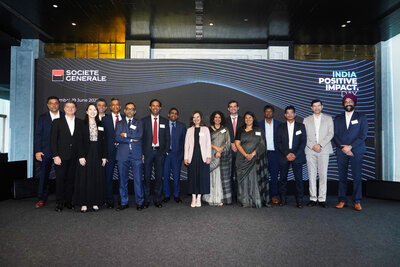 Societe Generale actively finances pioneering decarbonisation projects, in line with its commitment to provide €500 billion of sustainable financing globally by 2030. In India, the bank has financed a number of energy transition projects, including round-the-clock renewable energy developments.
Societe Generale actively finances pioneering decarbonisation projects, in line with its commitment to provide €500 billion of sustainable financing globally by 2030. In India, the bank has financed a number of energy transition projects, including round-the-clock renewable energy developments.
Positive Impact Day events, including the recent Indian edition, aim to showcase best practices and provide a forum for the bank and its partners to explore emerging trends, exchange practical solutions, and work together towards a more sustainable future.
“Transition will not be easy for many businesses because it will require big changes to their operations and across supply chains,” said Stephanie. “Helping our clients manage change and explore new ideas is more important than ever, and it's something we have done consistently for more than 160 years.”
1. www.pib.gov.in/PressReleasePage.aspx
2. www.reuters.com/business/energy/india-be-largest-source-energy-demand-growth-2040-iea-2021-02-09/
3. www.newindianexpress.com/nation/2025/Jun/10/india-to-face-twice-as-many-heatwave-days-43-rise-in-extreme-rainfall-by-2030-due-to-climate-change-study
4. www.pib.gov.in/PressReleasePage.aspx
5. www.pib.gov.in/PressReleasePage.aspx
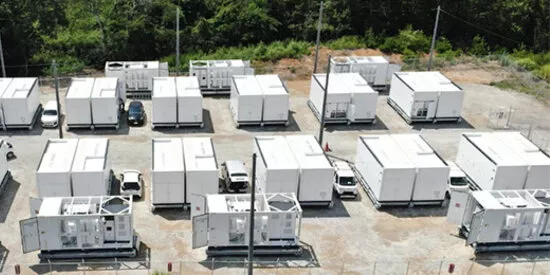
日本の長期脱炭素電源オークションで落札した蓄電池プロジェクトとして初のプロジェクトファイナンスを実現
ヘキサ・エネルギーサービスは、日本の長期脱炭素電源オークション制度のもとで開発を進める同社にとって日本初となる系統用蓄電事業において、業界における新たなテンプレートを築きました。ソシエテ・ジェネラルは、本系統用蓄電事業の資金調達において、主...

グローバルマーケットと日米金融政策の見通し
ソシエテ・ジェネラル証券株式会社 調査部長兼チーフエコノミストの劔崎仁とマルチアセットストラテジストの齋藤勉は先日、グローバルマーケットと日米の金融政策および金利の見通しについて見解を共有した。


